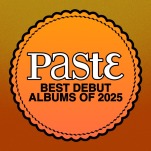It’s no great feat to tie 1984 or Animal Farm to the fascism of Spain or Germany. But Peck, with rapidfire examples of the doublespeak that has come to define military operations, bombings, murders, and torture, quickly assures his viewers that Orwell’s greatest fears are now the status quo. What follows are two blistering hours more informative and trenchant than spending a week poring over newspapers or choking down newscasts. The sprawling onslaught of images connects all of 2025’s bugbears—AI slop videos, ubiquitous facial recognition and surveillance, Zionist genocide, snowballing global totalitarianism, the evaporation of truth—with a thorough and convincing elegance.
By briefly engaging with Orwell’s personal history, his experience with British class dynamics and the fading days of its empire in Myanmar, Orwell: 2+2=5 links the inherent divisions and jealousies of wealth inequality with the various ways underclasses manifest. The lower end of the upper class can never reach the 1%, but they can always make themselves feel mighty big by pushing down those who are different from them. The drive to dominate can be easily transferred; economic envy can send one reeling backwards into prejudice. To be anti-fascist, the film implies, means becoming anti-capitalist—a brief and broad idea, but a compelling one made by a man whose sense of justice still gleams bright. As general as this connection may sound, Orwell arrives at this point through a self-loathing and relatable bit of introspection. He assesses his own teenage insecurities with hindsight-cleared eyes; Damian Lewis, warm yet resolute, narrates Orwell’s musings like a rumbling train rolling ever forward on the tracks of idealism.
The landscape zipping by the windows of this train is a global one. The footage Peck builds his world from include the lasting effects of imperialism on Myanmar, the modern plights of Gaza and Ukraine, strongmen politicians from countless countries, and endless examples of America’s right-wing circus. Supporting this unflinching gaze at belligerent political pageantry, and the very real death and destruction that it leads to, are countless pulls from pop culture. These are mostly from jarring adaptations of Orwell’s books, but range as wide and as recent as Minority Report and I, Daniel Blake. One doesn’t expect to see M3GAN introducing herself between insurrectionists, Hindutva ideologues, and atrocities wreaked by the IDF, but for Orwell: 2+2=5, anything connected to obfuscation is the enemy. AI is an instrument of consumption and deception—an ideal tool for fascism.
In its constant rejections and structure careening towards the author’s early death, Orwell: 2+2=5 brushes against the nihilism of 1984. Cowardice might win out the day, the strength of the opposition simply too overwhelming. The idea that everyone might eventually cave and sell out seems stronger every day. There’s a bitter immediacy to the documentary, which includes a long sequence about the government-ordered dismemberment of Saudi journalist Jamal Khashoggi, being released in the midst of countless comedians leaping to silence themselves at the Riyadh Comedy Festival. But Peck concludes not with the easy allure of resignation, but with protest and collective defiance—a slow fight that still rages on against the same forces that infuriated Orwell. Orwell: 2+2=5 is segmented using headings from 1984‘s doublethink: war is peace, freedom is slavery, ignorance is strength. But more than any other, the one contradictory equivalence this film does stand behind is that everything old is new again.
Director: Raoul Peck
Starring: Damian Lewis
Release Date: October 3, 2025









































